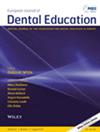Assessment of Undergraduate Dental Education on Domestic Violence in France
Abstract
Introduction
Domestic violence (DV) is a critical public health issue, and its detection and management are mandatory in the undergraduate curriculum of French healthcare professionals since 2010. While dentists can play a crucial role in detecting DV, education on DV is not uniformly implemented across French dental schools. This study aims to provide an overview of domestic violence education in undergraduate dental curricula in France, identify barriers to its implementation, and propose strategies for improvement.
Materials and Methods
A descriptive cross-sectional study was conducted using a 13-item online questionnaire sent to the heads of education at all 15 French dental schools. Inclusion criteria focused on accredited dental schools offering undergraduate training. Participation was voluntary and anonymous, and informed consent was implied by survey submission. Data were analysed descriptively.
Results
Among 15 dental schools, 11 (73%) responded. Six schools (54.5%) provided DV education, with a focus primarily on child abuse (100%), while intimate partner violence (66.6%) and elder abuse (20%) were less frequently addressed. Barriers included a lack of expertise among faculty (36.4%) and limited curriculum space (9.1%). Respondents favoured workshops and external speaker involvement to improve teaching.
Conclusion
The findings highlight the need to expand DV education across French dental schools to cover all forms of violence and strengthen interdisciplinary approaches. Future efforts should focus on addressing identified barriers, integrating innovative teaching methods, and ensuring that DV education is integrated nationwide through a standardised curriculum.

 求助内容:
求助内容: 应助结果提醒方式:
应助结果提醒方式:


